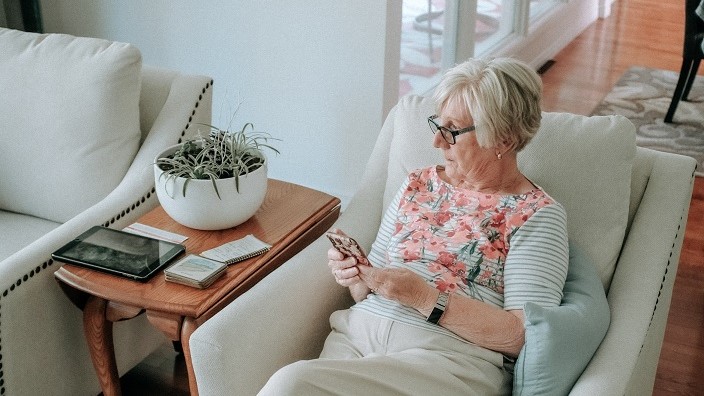Senior discount card scams
 A new scam is currently targeting older Aussies that use the pretence of a discount card to get money and personal information from seniors. Know the signs to keep your loved ones from giving out sensitive ID information or paying for a fake product.
A new scam is currently targeting older Aussies that use the pretence of a discount card to get money and personal information from seniors. Know the signs to keep your loved ones from giving out sensitive ID information or paying for a fake product.
How does the discount card scam work?
This scam often starts with a cold call from someone you don’t know offering a discount card for a membership fee. You might also come across this scam on a website that includes the same details. The link to the website might pop up on a social media feed or in an internet advertisement that looks like a news announcement.
The fake card promises to provide discount pricing at various locations in return for a fee. The fee is typically around $29 for ‘application processing'. While applying for the card, seniors are asked for various pieces of personal identification information, which is then sometimes sold on the black market or used to steal their identities. The card is not real and the fee is stolen along with the victim’s details.
What are the red flags that the advertised discount card is fake?
There are warning signs about this fake discount card that alert people to the fact that it’s a scam:
It claims to be 'officially approved'. However, people targeted by the scam aren’t always told who precisely has approved it or may be given the name of a fake agency.
Seniors are never asked to pay membership or application fees for legitimate discount cards. So, any fee is a red flag that the scam card is fake.
A high level of personal or financial information is unnecessary for a discount card. Being asked for your bank account information, credit card number, PayPal account information, or similar details is a sign of a scam.
How to avoid scams like the fake senior discount card
Once you understand how scams like the fraudulent seniors discount card work, it’s easier to protect yourself and others. Follow these tips to avoid being a target, regardless of your age:
- Be cautious about answering calls from numbers you don’t recognise
- Take a moment before providing anyone with personal or financial information, particularly if you did not initiate the conversation
- Don’t click on internet links that look fishy or come from sources you don’t trust
- Know how your bank and other entities will reach out to you or request information. For example, we’ll never contact you and ask for your password or PIN, nor will we ever ask you to transfer money to a third party.
If you’re unsure if it’s really a representative from your financial institution that you’re speaking with, it’s best to hang up or ignore it and visit your local branch to confirm. It’s always fine to put any transaction on hold until you’re comfortable that it’s safe.
If someone pressures you, simply say, 'I’d like to think about this. I’ll get back to you'. Usually, someone needing your bank or other information instantly is another sign of a scam, as is them not being willing to provide contact information for later.
If you’re worried that you’ve already given your personal information to someone who might use it for fraudulent purposes, contact your bank as soon as possible.
This article is intended to provide general information of an educational nature only. Information in this article is current as at the date of publication.

